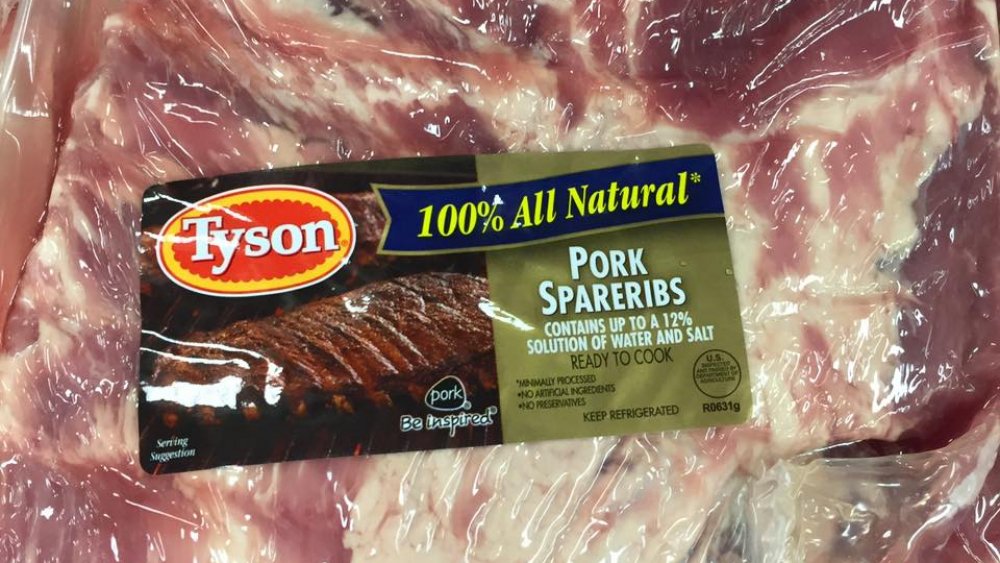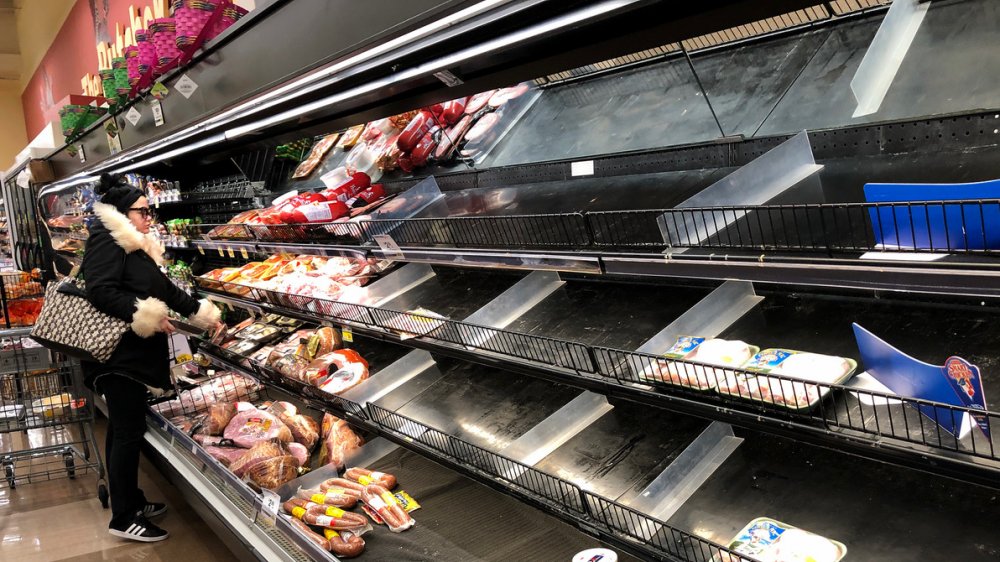The Real Reason Tyson Is Shutting Down Its Largest Pork Plant
Tyson Foods is closing its largest pork processor after nearly 200 employees tested positive for the virus that causes COVID-19 (via Delish). Tyson announced the decision to shut down its Waterloo, Iowa facility on Wednesday, one week after the small city's mayor appeared on CNN and said the plant should be closed immediately.
According to Business Insider, Iowa is one of a handful of states where the governor has not asked residents to stay home to prevent the spread of the novel coronavirus. After Waterloo Mayor Quentin Hart's plea on CNN, Iowa Governor Kim Reynolds stopped short of closing the facility, calling instead for new screening procedures for workers, CNN reported.
Tyson President Steve Stouffer said in a statement that closures to plants in Waterloo and Logansport, Indiana were in response to "community concerns," as well as the rash of COVID-19 cases. "The safety of our team members remains our top priority," he said.
Tyson's Waterloo plant employs about 2,800 workers and processes 19,500 hogs a day — about 4 percent of the nation's pork (via The Washington Post).
More than 2,200 COVID-19 cases have erupted in at least 48 meat processing plants around the U.S., according to USA Today, including a now-shuttered Smithfield Foods plant in South Dakota that processed another 4 to 5 percent of the nation's pork. The COVID-19 virus spreads easily in meat plants because workers cannot maintain the recommended six feet of social distance while on the job or in the break room, USA Today reported.
The threat of meat shortages is more real
An early warning from Smithfield's CEO on April 12 about an impending meat shortage is gaining traction. Several meat-industry observers told Politico consumers could expect to find shortages on their grocer's shelves in May. These would be true shortages, different from the bare shelves seen early in the rise of the pandemic. Panic-buying and supply-chain glitches were the problem back in March. The nation has hundreds of millions of pounds of pork set aside in frozen storage — in addition to half a billion pounds of beef and more than a billion pounds of chicken. But these amounts are only a fraction of what is processed in a given month (via the Los Angeles Times).
While consumers may expect trouble next month, those on the other end of the chain — the pig farmers — are already facing some tough decisions. Farmers have changed pigs' feed formula, so the animals grow more slowly (via MarketWatch). With the price of hogs plummeting, some Canadian farmers have euthanized animals that were ready for slaughter (via Bloomberg). Minnesota farmers may have to do the same with some 200,000 pigs in the next few weeks, Bloomberg reported. The waste of animals follows reports of farmers dumping milk and destroying crops that couldn't find a market after the country went into a COVID-19 lockdown.

